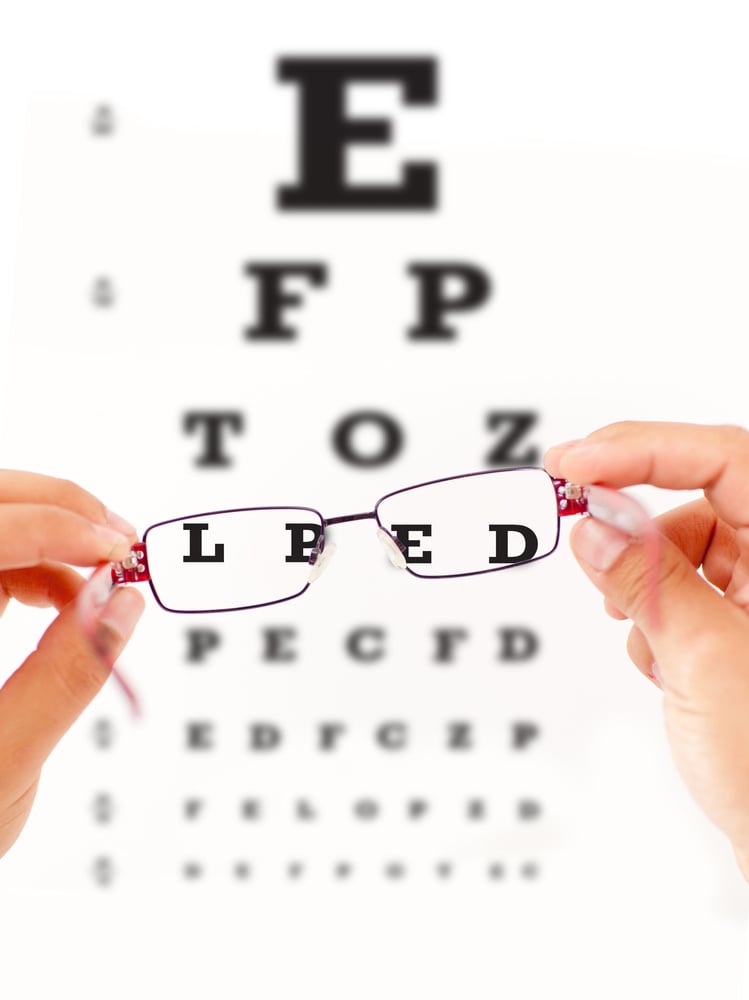As we age, our vision can deteriorate, but this doesn’t have to limit the lifestyle we want to maintain. Being aware of the warning signs of age-related eye health issues can help prevent serious vision problems.

Many eye diseases have no early symptoms. A well-known example is the case of Kirby Puckett, whose career was cut short by glaucoma. Had he been seen by an eye doctor before the stroke in his eye, the disease might have been detected and prevented. Seniors can also experience sudden onset of macular degeneration, which disrupts central vision. Regular eye checkups, although not a guarantee, significantly increase the chances of maintaining healthy vision. Those with diabetes or hypertension should be especially vigilant.
Age-Related Eye Changes and Problems
Cataracts
Cataracts are cloudy or opaque areas in the lens of the eye. Depending on their size and location, they can interfere with normal vision, causing blurry vision, decreased contrast sensitivity, difficulty seeing in low light, dull colors, and increased glare sensitivity. Cataracts usually develop in both eyes, but one may be worse than the other. Fortunately, treatments such as lens replacement have been effective for decades.
Age-Related Macular Degeneration (AMD)
AMD affects the macula, the central part of the retina, and causes central vision loss. It's the leading cause of severe vision loss in people over 50. Good central vision is crucial for activities like reading, driving, watching TV, and recognizing faces.
Glaucoma
Glaucoma is a group of eye diseases characterized by damage to the optic nerve, leading to peripheral (side) vision loss. It often affects both eyes, typically one before the other. Without treatment, glaucoma can result in total blindness. This disease often has no early symptoms, making regular checkups crucial.
Diabetic Retinopathy
This condition occurs in people with diabetes due to progressive damage to the blood vessels that nourish the retina. These vessels can leak blood and fluids, causing retinal tissue to swell and cloud vision. The longer a person has diabetes, the higher the risk of developing diabetic retinopathy.
Dry Eye
Dry eye occurs when a person produces too few or poor-quality tears. This common, often chronic condition in older adults can cause vision clarity issues and pain, significantly impacting daily life.
Retinal Detachment
Retinal detachment involves the retina tearing or separating from the underlying tissue, often due to changes in the vitreous fluid that fills the back of the eye. It can also be caused by trauma, advanced diabetes, or inflammatory eye disorders. Prompt treatment is essential to prevent permanent vision loss.
Eye Care Tips for Seniors
Regular Checkups
Routine visits to an eye care professional can help detect and manage eye diseases early. Seniors with a history of glaucoma or diabetes should be especially diligent about these exams.
Diet
Consuming foods rich in vitamins and nutrients supports eye health. Kale, carrots, eggs, sweet potatoes, oranges, almonds, and salmon are excellent options. Diabetics should manage glucose levels to prevent eye damage. There are also multivitamins according to the American Academy on Opthomology may help people with dry AMD.
Exercise
A physician-recommended exercise plan enhances overall health and benefits the eyes by improving blood circulation, which helps remove toxins and increase oxygen levels.
Avoid Eye Trauma
Preventing eye injuries is crucial. Wearing protective eyewear, using chemicals and sharp objects cautiously, and eliminating trip hazards can help avoid accidents.
Smart Computer Use
Extended computer use can strain eyes, causing headaches, irritation, and vision problems. Ensure good lighting, take regular breaks, and use corrective eyewear. Follow the 20-20-20 rule: every 20 minutes, look at something 20 feet away for 20 seconds.
Manage Health Issues
Discuss how other health conditions and medications might affect your vision with a healthcare professional.
Wear Sunglasses
Protective eyewear is increasingly important with age. Build the habit of wearing sunglasses outdoors to protect your eyes from harmful UV rays.
Sleep
Adequate sleep is vital for overall health, including eye health. Ensure you get enough rest to support your vision.
If you have a prescription for glasses, wear them to avoid eye strain and related discomfort. Avoid rubbing your eyes, especially during allergy season, and use over-the-counter drops for irritation relief. Pataday, for instance, is a recommended option.
Take proactive steps to maintain your eyesight and enjoy a vibrant, healthy life!
References
ClearCare. “3 Easy Tips for Seniors to Maintain Healthy Eyes & Improve Vision.” Web. 2016.
American Academy of Ophthalmology. “Tips for Eye Health in Adults Over 60.” Web. 2014.
All About Vision. “Boost your diet to protect aging eyes.” Web. 2019.
Bausch + Lomb. “60+ Eye Health.” Web.
American Academy of Opthomology





